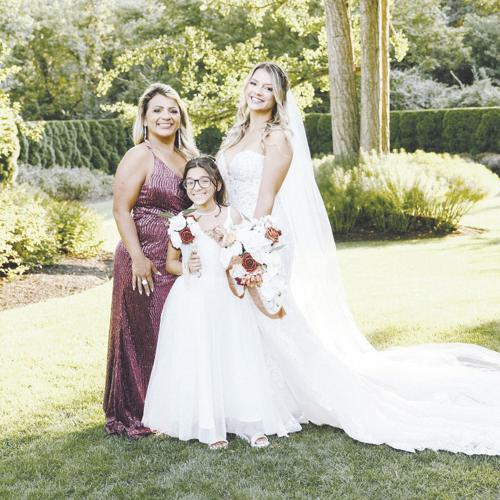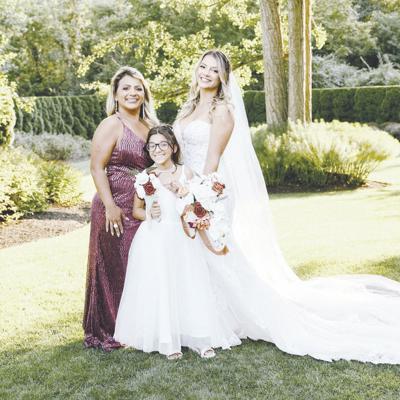
Sophia Aimen Sexton
Each semester, I ask students in my English course at Northern Virginia Community College to write a personal essay about how their upbringings have shaped them.
I’ve read hundreds of these narratives over the years and have noticed two common themes: Everyone feels alone at some point, and the best way to face that loneliness is to share their stories and allow others to see who they truly are – the good and the bad.
This was a lesson I learned growing up. I often felt anxious and depressed as a teenager. But I never spoke to my Afghan parents about how I was feeling. As in many immigrant households, it was taboo to discuss things such as anxiety and depression. Add to that my parents’ distrust of service systems – along with cultural and linguistic differences and financial barriers – and it took me many years to finally get the support I needed.
This is why the story of my former student Isabelle LoCastro really stuck with me – and why during this Mental Health Awareness Month, she wanted to share it with readers. Her story is about her search for emotional stability and personal independence – both pain and beauty.
In LoCastro’s case, the mental health challenges were her mom’s, but LoCastro did not understand them until much later. When LoCastro was growing up, her mom behaved erratically and struggled with daily responsibilities. Extended family didn’t help, so starting at age 7, LoCastro had to manage the household and care for her mother.
“It’s always been hard to connect with my mom because of her mental state,” she told me. “And it was just us for a long time. No one else seemed to care. And that was frustrating and isolating.”
At age 9, a tragic, yet profound, moment occurred in LoCastro’s life that heightened her role as caregiver. Her mom’s boyfriend crashed the car they were traveling in, and LoCastro’s arm was shattered in multiple places. She was in excruciating pain. Still, when she heard her mom’s cries for her help, she dragged herself across the wreckage to comfort her mom.
From that moment, LoCastro wasn’t only her mother’s sole emotional support, but her physical support as well.
Things briefly improved for LoCastro when she was 11 and her mom remarried. Her stepfather convinced her mom to seek treatment, and she was eventually diagnosed with bipolar disorder.
“It was a huge relief,” LoCastro admits. “Now it’s more acceptable to talk about mental health. But back then, I grew up hearing everyone in our family just call my mom ‘crazy.’ It probably prevented me from having some of the empathy I have for her today.”
Bipolar disorder can be managed with medication, which meant restoring stability to their home life was possible. This new information helped ease some of the strain on her relationship with her mom.
“Once I started to understand the ups and downs, I could figure out more productive ways to respond,” LoCastro told me.
Of course, nothing about mental illness is straightforward. LoCastro and her mom continued to struggle, especially after her mom welcomed a new baby and experienced postpartum depression. LoCastro was in high school by then and says she felt like she “didn’t belong anywhere, like I didn’t have a home” anymore. That’s when she decided to leave Brazil.
“At that point, I just wanted to get away from my family,” she said.
LoCastro moved to the United States as an au pair in February 2020. She adored her job caring for some amazing families, but she also experienced discrimination and shame from other families, triggering the traumas of her past while feeling like an outsider in this country.
Her only refuge was being with her now-husband. She met him while working for a family outside Baltimore. As they were getting to know each other, LoCastro confided in him about her upbringing and the challenges she faced living with her mother.
“He became my anchor,” LoCastro said.
With his encouragement, she began seeing a therapist, who helped her process her experiences managing her mom’s mental illness. This was a crucial step; studies show children of parents with poor mental health are more likely to have poor mental and physical health themselves. For the first time, LoCastro was able to see how strong she had become.
“I could have gone down a dark path with drugs, alcohol, and other things like that,” she points out. But instead, she used her experiences to drive her toward a brighter future. And that’s when it hit her: Maybe she could help other young adults and children navigating similar family dynamics.
LoCastro and her husband moved to Washington last summer for his job, and LoCastro enrolled as a student at Northern Virginia Community College. She’s now in her second year and working toward a degree in psychology.
Stability is the one thing she has been searching for her entire life, and she has finally found it. Now, she will help others find theirs.
“I want to be the therapist, the adult I wish I’d had around when I was young,” she said. “I know from experience how good it feels once you can finally find stable ground.”
Sophia Aimen Sexton is a professor of English at Northern Virginia Community College’s Annandale campus and co-founder of the nonprofit Female Refugee Education Empowerment.






(0) comments
Welcome to the discussion.
Log In
Keep it Clean. Please avoid obscene, vulgar, lewd, racist or sexually-oriented language.
PLEASE TURN OFF YOUR CAPS LOCK.
Don't Threaten. Threats of harming another person will not be tolerated.
Be Truthful. Don't knowingly lie about anyone or anything.
Be Nice. No racism, sexism or any sort of -ism that is degrading to another person.
Be Proactive. Use the 'Report' link on each comment to let us know of abusive posts.
Share with Us. We'd love to hear eyewitness accounts, the history behind an article.